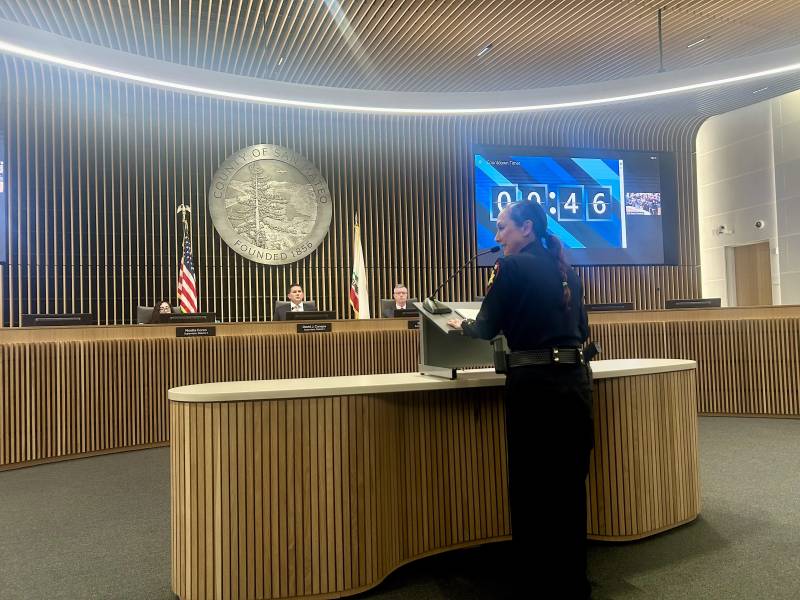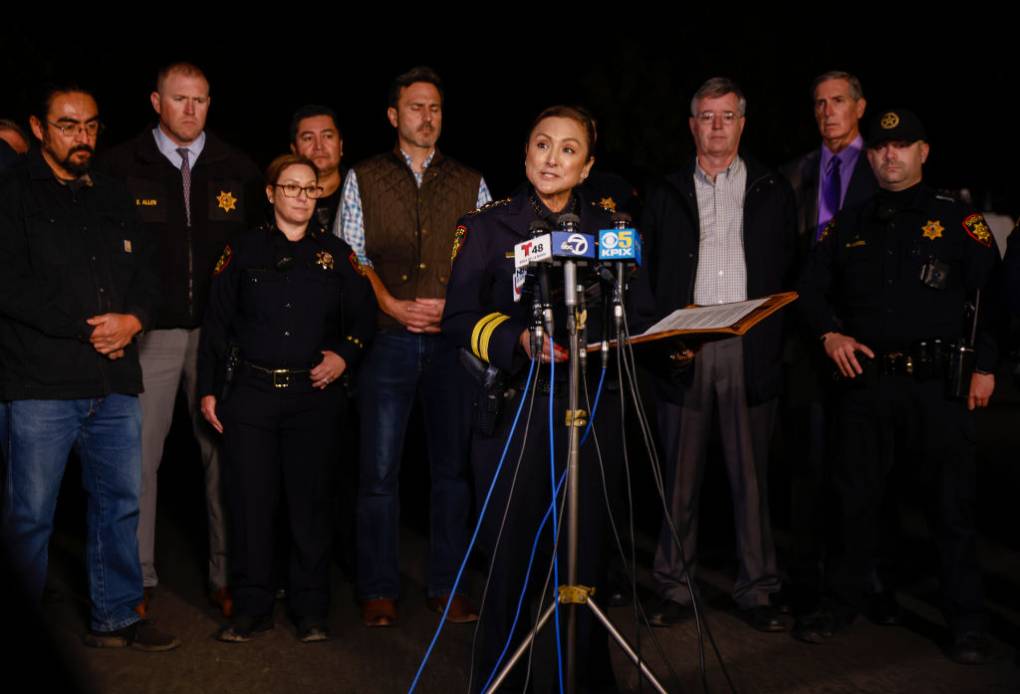In the following months, local, state and federal lawmakers — many of whom were previously Corpus’ supporters — called on the sheriff to resign. She didn’t, but most of her leadership team did. Many of them had been personally recruited by Corpus to join her, including several who have filed lawsuits against Corpus and the county.
In March, voters passed the measure by 84% to allow supervisors to remove Corpus.
Thomas “Tip” Mazzucco, one of three attorneys appearing on behalf of Corpus at Tuesday’s meeting, said the board shouldn’t have been able to reach the four votes needed to remove the sheriff. He said Supervisors Noelia Corzo and Ray Mueller, two former Corpus supporters who later championed the push to remove her, should have recused themselves from the vote because of “statements they have made.”
“Sheriff Corpus is not resigning. She hasn’t run and hid from you. She’s not going anywhere,” Mazzucco said. “She will exhaust all her administrative remedies and then all her judicial remedies. This is political. It’s not practical. It’s become personal, and we will take this as far as we need to take it.”
Corzo said she looks forward to the day when all the information available to supervisors is made public, including transcripts from Corpus’ Skelly hearing, a routine, pre-disciplinary process for public employees in California.
That pre-removal conference was held behind closed doors, and the report from the county’s Chief Probation Officer John Keene has been kept confidential at Corpus’ request, according to the county. In it, he stated that he found Corpus “violated the for-cause provisions” and that her removal was warranted.
Besides Cordell’s extensive report, the county also relied on an investigation prepared by the law firm Keker, Van Nest & Peters, which used 524 pages of documentary evidence and 42 witness interviews. That report concluded that Corpus violated the law “related to the performance of the sheriff’s duties … flagrant and repeated neglect of the sheriff’s duties … and obstruction of an investigation into the conduct of the sheriff.”
“We stand firm in knowing that this process is one that will do right by the community and is the right thing to do,” Corzo said.
The board’s vote on Tuesday brings San Mateo County into entirely uncharted territory, as no other charter county board has successfully voted to remove its sheriff.
Los Angeles County voters gave supervisors the authority to remove then-Sheriff Alex Villanueva in 2022, but the board didn’t need to use it as he lost re-election to a primary challenger. San Francisco’s board brought then-Sheriff Ross Mirkarimi to a vote of potential removal in 2012, but not enough supervisors voted to do so.
County Attorney John D. Nibbelin said the county would officially notify Corpus of the board’s vote via email. She then has five calendar days to file a notice of appeal.
The county, then, is obligated to offer her the option to pick one of “three neutral hearing officers with experience in public safety officer disciplinary matters” to oversee a formal removal hearing.
Once Corpus chooses her preferred officer to oversee her hearing, it could occur in private, if Corpus chooses to, within 30 to 60 calendar days after the officer has been notified. After that hearing is concluded, the hearing officer would have 45 days to submit a written advisory opinion to the board.
“Thereafter, the board would have 30 days to act on that advisory opinion,” Nibbelin said, reiterating that Tuesday’s vote “would constitute a final decision of this board to remove the sheriff.”



